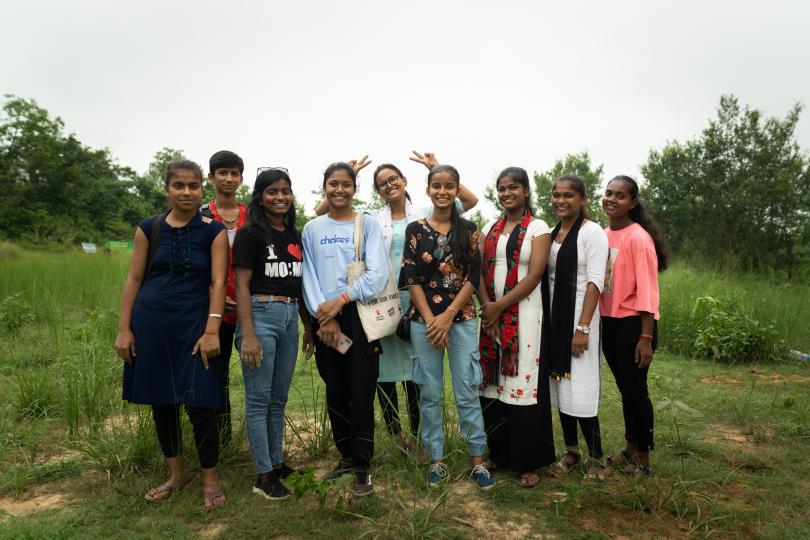HIMANI HAS SOME GREAT SUGGESTIONS FOR LEADERS

When Himani (16) experienced COVID-19 three years back, she realized the importance of keeping the nature in balance and protecting it so that the world is livable for humans now and in the future. “The simplest way of explaining climate change to people who may not know about it is to tell them how the temperature has changed in our place and how new diseases like COVID-19 are being born,” says Himani. Himani with her friends from Kayapalat, a youth network of more than 50 youth and children, makes people understand about climate change and the ways and importance of environment conservation.
Himani has witnessed the change in her locality. Previously, the area used to be clean, the weather was predictable. “Now, we can’t tell when it rains. For example, August is the month of rain in Nepal. It used to rain and the paddy we have planted used to get enough water and the harvest would be good. But, from past some years, the pattern of rainfall has changed. It has not rained this year and the paddy field is dry. This will affect the production of paddy which in turn will affect the day-to-day life of people here,” Himani says. In the years when production is low, the family members might need to migrate to the neighboring country for jobs and income.
Just 16-year-old, Himani does not shy away from presenting her ideas of environment conservation and has some great suggestions for the people in the government. Though big decisions are to be done by the government and the state, children, in her opinion, can start small. She thinks one can start from their own homes and schools. When children study about climate change in their school curriculum, they should be encouraged to apply their knowledge in practice. “For example, I have encouraged my younger brother for tree plantation, waste segregation and waste management. He has studied these things in his schoolbooks, and I have made him practice what he learns. So, he participates in activities like trees plantation, awareness raising, etc with me,” Himani proudly shares.
Her brother was also a part of tree plantation campaign where Himani and other members of the group planted more than 100 thousand trees in the Chure region of Madhesh Pradesh. She thinks the local government’s priority should be afforestation, formulation, and implementation of policies to regulate factories to minimize pollution and forest conservation. “If I was in the position to form policies, my focus would be to promote electric vehicles, regulate big factories, have policies to include climate change in the school curriculum from the very start, policies to maintain green space and promote physical activities of children and reduce the production and use of junk foods,” Himani says.

She thinks only children can bring the real change in environment as they are the future and it’s important for the current generation to invest on children in terms of climate knowledge and climate action. Himani’s plan for now is to actively participate in the actions and discussions led by the group while enhancing her knowledge on climate change, planning and ways on how the world’s best countries are combating climate change.
About the group:
Kayapalat is a network of more than 50 young climate enthusiasts who aim to role model climate friendly behaviours to inspire others for environmental conservation. The group also aims to work closely with the government and the stakeholders for climate friendly policies and actions in Madhesh Pradesh. The group in coordination with the local government, Save the Children, and local like-minded networks, has plans to plant more trees in the Chure region. The group will continue the plantation activities along with awareness raising and lobbying works.
Kayapalat is also one of the youth partner organizations for the SHIFT model being jointly run by Save the Children and WWF Nepal. Through the SHIFT funding, Kayapalat aims to increase the knowledge of children and adult in Madhesh Pradesh on climate change. They will conduct various activities in the schools and communities to inspire people to take climate action.



